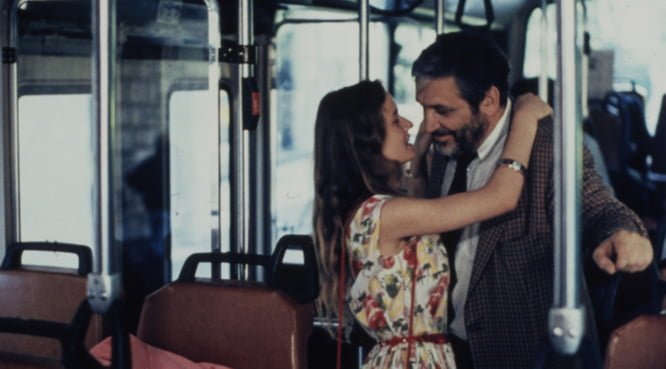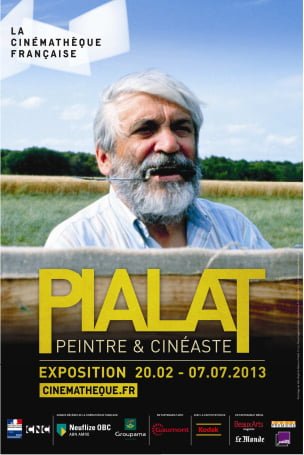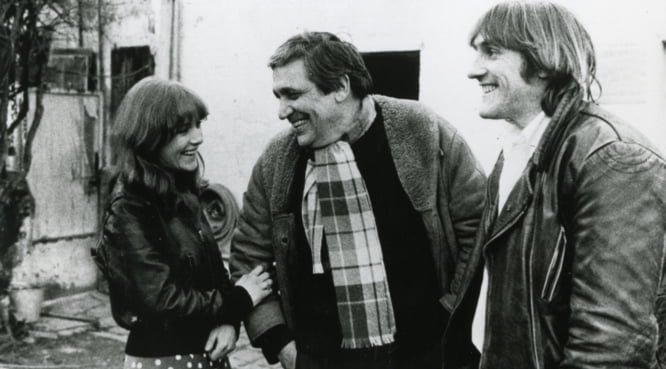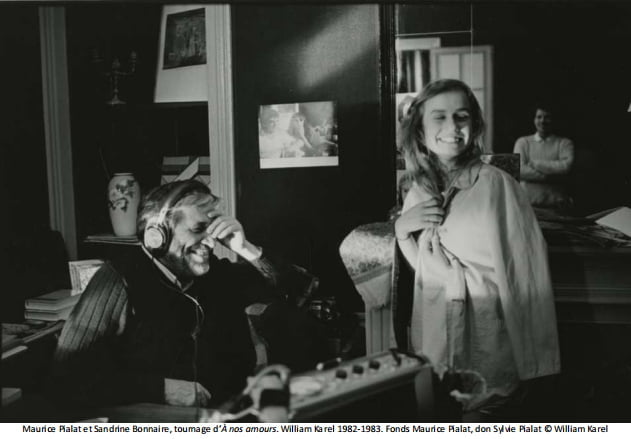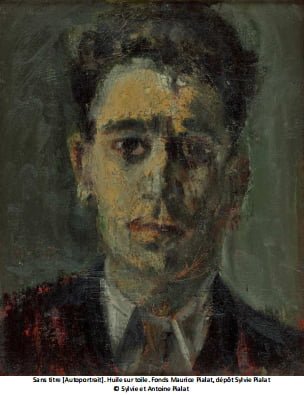Maurice Pialat, peintre et cinéaste français
This article is in French. Click here to read it in English.
It was ten years ago, French filmmaker Maurice Pialat (1925-2003) disappeared. This anniversary is an opportunity for the Cinémathèque de Paris finally back on its full and complex work, between painting and cinema, from February 20 to July 7, 2013.
Through unpublished documents, paintings, sketches and letters entrusted by his wife, Sylvie Pialat, the exhibition now allows the public to rediscover the director Maurice Pialat but man, and especially to explain a work sometimes considered incomplete.
A career failed painter
“If you’re not a genius, it is better to stop,” said Pialat. Before becoming the renowned and talented filmmaker Maurice Pialat is oriented towards painting as a teenager. Little confidence in the future perhaps he left abruptly , to save his life in cinema. Did he have remorse? Certainly.
His films evoke such paintings, pictorial forms, the play of light, shadows and colors. As Gérard Depardieu, his favorite actor emphasizes his work is actually that of a painter. For him, the sudden trace of brushwork is more important than perfectly smooth result and varnishes.
It is therefore not by chance that he chose to trace the last days of the life of Van Gogh in his penultimate feature film. This is the filmmaker himself holding the brush. He describes the chaotic universe, uncertain and unstable of the artist’s life. This anxiety and the emotion itself is not known to hide. The life he should have had, perhaps.
A French filmmaker a little apart
Pialat’s film career thus fits late. In 1968 he directed his first film, ‘L’Enfance nue’, having tried several times to short films. He said on the sidelines of the current New Wave, “a story of friends” he said. Younger and without financial means, Pialat shows jealousy facing those artists who are “awakened” ten years before him. He feels a sense of injustice , somehow.
Despite its uniqueness, it can not be denied reconciliations between the cinema of the New Wave and hers. Among them, the search for truth in acting for example, and accuracy. Confident gestures and hesitant look Sandrine Bonnaire, he discovers during the filming of ‘A Nos Amours’, false detached attitude Isabelle Huppert in ‘Loulou’, or face marked by anxiety and emotion of Jacques Dutronc, aka Van Gogh, are all remarkable figure of authenticity .
Nothing prepare reject control, that its fundamental principles. The result was a privileged bond between him and his players.
The proportion of controlled improvisation sometimes blurts hesitation, sometimes a slip and gives the cinema Pialat its full scope. In other words, he favors a stripped naked bodies and situation. This is the movie of the moment , which escapes us and makes us live together.
A melancholy work
Any spectator Pialat could not help but notice the constant in his work: the stories, it does not exist. He traded the happy end of a light and easy about hopeless against the trauma of a life, a situation, a character. His films are imbued with a dark melancholy and violence. Reflected in his choice of topics: loneliness, abandonment, vulnerability and conflict that shape shots. These themes conceal a deep humanity that takes us into the void without that we can emerge.
Pialat denies the temporal connection and harmony dialogue and favors a move away from the camera, reflecting an intense realism. His dark-like expressionist paintings reflect this same pain . In a word, it is clear from his work a pictorial and violent beauty that finally reveals the injury and the sensitivity of the director himself.
Exposure: Pialat, painter and filmmaker
From February 18 to July 7, 2013 at the French Cinémathèque .
Monday and Wednesday to Saturday: 12h-19h Sunday: 10h-20h, closed on Tuesdays. 5 euros entry.
1. Painter and filmmaker Maurice Pialat remorse at the French Cinematheque on cinema.nouvelobs.com .
2. official website Ina .
3. official site of the French Cinémathèque .
4. Maurice Pialat, “Wild Child” (Mark Chevrie, 1992) Image credits:
1. Maurice Pialat in the film A Nos Amours ., on cinematheque.fr
. 2 Poster exhibition ., by Luc Roux / Sygma / Corbis Graphics / CinéCulture The French Cinémathèque
. 3 Maurice Pialat and Gerard Depardieu on shooting Loulou on the cinematheque.fr.
4. Maurice Pialat and Sandrine Bonnaire , by William Karel.
5. Self portrait by Maurice Pialat.

